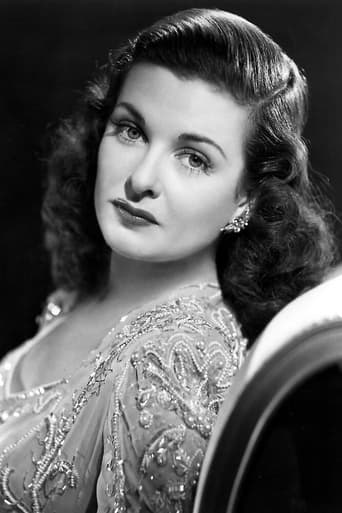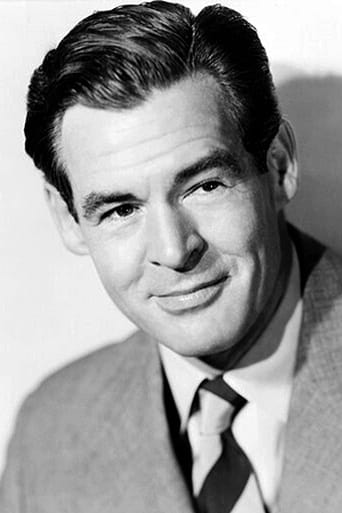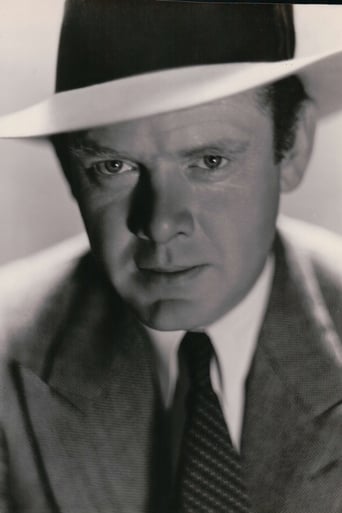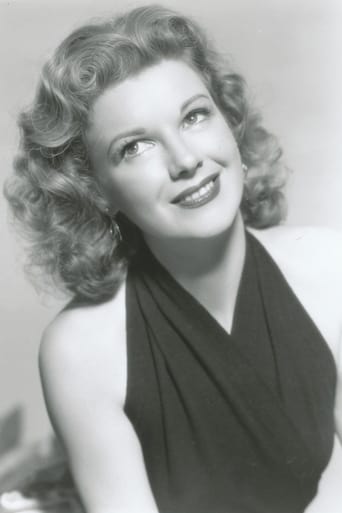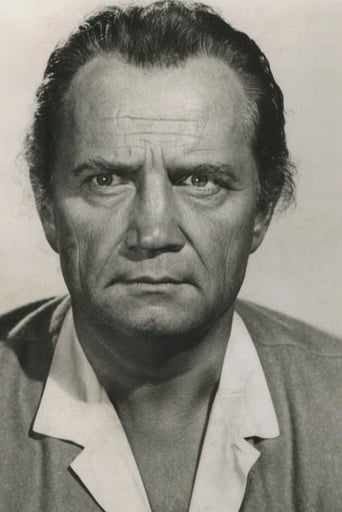IslandGuru
Who payed the critics
Fluentiama
Perfect cast and a good story
ReaderKenka
Let's be realistic.
Manthast
Absolutely amazing
FilmAlicia
Renoir does noir. (I couldn't resist.) This review contains minor spoilers.In your average noir, the set-up of older man, young, beautiful wife, and younger lover would have gone in a predictable direction. In "The Woman on the Beach," the filmmakers are trying for something more symbolic, which unfortunately doesn't quite work. While the plot is intriguing, the dialogue is stilted and, at times, laughable. Every time Joan Bennett appeared, I kept thinking of the matronly Mrs. Collins from "Dark Shadows." I didn't find her the least convincing as the female lead. To me, she's definitely femme, but not in the least fatale. (To her credit, she does have a very nice laugh.)There are times in the story when the police would most certainly have been called in. And, at least part of the resolution of the story was predictable. On the other hand, I thought the relationship between Robert Ryan and Charles Bickford showed the ridiculous lengths to which men fighting over a woman will go, and their interactions were the best part of the film. While it doesn't quite work, "The Woman on the Beach" is worth seeing if only because of Robert Ryan and Charles Bickford, and because it was Renoir's last American film.Just a note that I have since seen Joan Bennett in "Scarlet Street" and "The Reckless Moment" and I take back everything I said about her above. She was awesome!
chaos-rampant
Film noir is all about a narrator losing control of his story and succumbing to hallucination. French critics were the first to identify it because they had their own tradition of this, the silent films of Epstein, Kirsanoff, L'Herbier, rich in inwards reflection and confused mind. Later Duvivier and others. So this does nothing new for noir, but is amazingly effective because it comes by the hand of someone who has lived in his films, so quite deeply, the transition from dream to the light of day. Rules is just not my kind of film, it's too fussy. But remember, Renoir started in the impressionistic style of the 20's and artistically grew up in his father's paintings and Epstein's cinema. It pays off in this small film here.The plot is that a man has come back from the war, a happy life ahead of him. He can't wait to get married, and what would be more sensible than that. But something is not quite right with him, his body is doing fine but other wounds have not healed.Our first scene of him, is where he sinks to the bottom of a dream which is a woman beckoning. This is what's all about here, visions from a confused mind. Debris and shatters the war has left in his soul are dragging him down. He wants freedom from all that. Deep down, he wants frothy sex that floats and not the deep pull of marriage.Next to a shipwreck on a windswept beach he encounters the dreamy woman with flowing raven hair. It turns out she's the unhappy wife of a blind painter and they both share a desire to be free to explore again.Now you can call the noir plot in advance, deceit and all that, you wouldn't be wrong, but it's the French touch that matters. It's Renoir's blind painter who guides the vision here, blind but has finetuned other subtler senses to experience the world.he begins to dictate something about goodness not being inherent in man, but trails off, dismayed that bare words can ever provide real in-sight. No, we need images of soul.you don't need to think what a painting is all about, he muses, you just have to trust the eye to see.but see, it was a night of wild passion, unchecked desire, that cost him his 'sight'. The damage of the eyes is so deep, he cannot even tell 'light from dark'.he clings to paintings that could make him rich, including a portrait of the wife, because it's the only memory left.It's all so clearly reflected here, evocatively framed between high cliffs and a tempest at sea. The beach as shared wounded soul. The masterful touch is that our man is not convinced of the blindness, believes it's all a put-on for spite or control, which is the deeper noir mechanism, refusal to believe that unbridled desire can blind you. It ends with a burning house, a proper vision. We can surmise that, having 'seen', having had in-sight of the delusional chimera they both were chasing, they are cleansed to go back to healthy relationships.A tantalizing prospect is getting to imagine the film in its complete state, what we have exists in a meager 71m version.RKO rolled in and once more butchered a film. However, we don't have any of the ambiguous perturbations caused on the reality of the film by removing parts of it that happened in the case of Welles, what I term the Ambersons effect, my guess is this is the result of not simply recutting for continuity but actually reshooting parts of the film. So it fully makes sense the way we have it.Still, who knows what RKO deprived us of. My guess is they cut off a lot of richly reflected poetry and dream scenery from the beach and sea. You can fill in on that by watching Epstein's Le Tempestaire, released that same year. It's layered just so to fit right in here: a woman stares out at sea worried for her fisherman boyfriend, an old woman warns of a portentous tempest rushing from behind the skies. It's one of the best films I have seen.
dougdoepke
A Coast Guard officer gets involved with a strange woman and her blind husband.Small wonder Renoir went back to France after this Hollywood misfire. I don't know what the backstory is but the movie's a mess, great director or no. The problem pretty much begins and ends with a screenplay that makes next to no sense. Start with motivation-- is Peggy (Bennett) a loving wife who simply strays, or maybe she's just a nympho addicted to sex, or even a masochist who likes pain; or maybe even a woman deeply in love with Tod (Bickford). Unfortunately, there're reasons for any and all of these, thanks to the meandering script. Then again, considering how changeable human emotions can be, maybe the options are not as mutually exclusive as first appears; maybe Peggy is just really mixed up. Still, it would take a far better script to effectively work out that particular pathology whatever it is. Here, options are simply dumped together into an incoherent jumble. Unfortunately, Tod's character is similarly mangled-- try figuring out, for example, how Tod and Scott (Ryan) really feel about each other. But there's no need to repeat the points other critics have enumerated. Then there's the staging. In particular, consider the following-- a half-blind(?) Tod tumbles from a 100-foot rocky cliff with only minor head scratches; in a rocking little boat, Tod and Scott stand stock still as the seas rage beside them; at the same time, the two enemies survive after hours of clinging to the roiling wreckage. To me, all of these staging fiascos could be made more credible with better planning. Fortunately for the movie and us, there are arresting visuals to focus on— the opening nightmare is a stunner, along with the wrecked ship on the beach. Renoir also creates an intense fantasy-like atmosphere with the foggy beach and the ship's grotesque skeleton. Then too, Ryan and Bickford make convincing hard-nosed adversaries. But these upsides are unfortunately not enough to salvage the overall result. Considering Renoir's previous successes, especially with the lyrically impressive The Southerner (1945), I'm guessing the studio had a dead hand in (mis)shaping the final cut. But, I guess it's also possible that the director-writer was trying to bring some European sophistication to a moody love story that just doesn't work. But whatever the ultimate reason, the movie remains a disappointing muddle.
Martin Teller
The Woman on the Beach A coast guard lieutenant gets caught in the middle of a tempestuous marriage. The film has a lot of psychological angles and is anchored by three strong characters with fine performances by Ryan, Bennett and Bickford. However, the story just never takes off and seems to float around without a destination. The emotions bubbling under the surface rarely materialize into compelling plot material and I was fighting boredom a lot of the time. I also found the cinematography uninspired (except for Ryan's surreal nightmare) and the score far too oppressive.6/10

